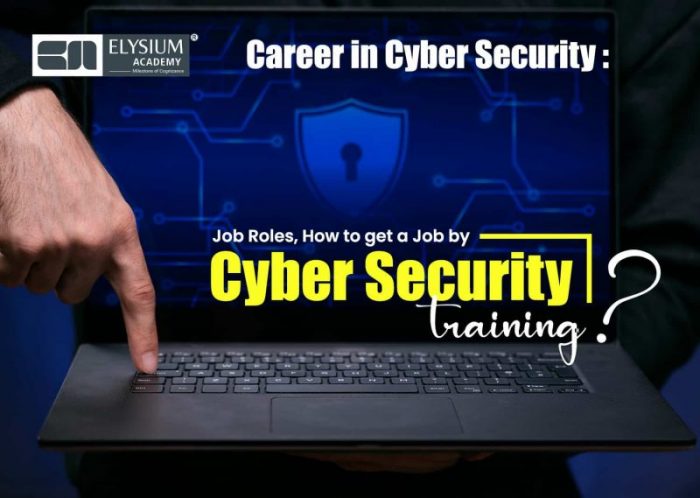Career in Cyber security is an ever-growing industry. As cybersecurity persists to grow in extent, more technical parts are appearing. Begin as a cybersecurity analyst makes possibilities to pursue your interests within the world of knowledge security and build a career in cyber security is a right path for you. Learn about five common career paths within this high-demand field.
What Does A Cyber security Professional Do?
Similar to an information researcher, network protection proficient is assigned with a different scope of obligations. All kinds of security systems are evaluated, planned, and implemented as part of this. Protecting an organization’s IT infrastructure and data from compromise is a fundamental responsibility of a cybersecurity professional. To keep the organization safe from potential dangers and keep an eye on activities as well. A skilled cybersecurity professional can quickly identify the issue and address it.
HERE ARE SOME QUESTIONS PEOPLE ASK WHEN THEY CONSIDER A CAREER IN CYBERSECURITY:
• Do I hold any certifications related to IT? Are the declarations forward-thinking?
• Is my security clearance valid?
• Would an entry-level position as a junior cyber security specialist suit your prior IT experience?
Having prior experience in the field is helpful, but it is not necessary to be qualified for an entry-level junior cybersecurity position. Students who came to us with no prior IT experience ended up working in high-paying cybersecurity positions. A Certification in cybersecurity or information technology is not required either. In order to advance in a career in cybersecurity, you must concentrate on the courses listed below and possess the appropriate mindset.
The Must-have Skill Sets for A Career in Cybersecurity Professional
Success as a career in cyber security professional requires a diverse set of soft and hard skills. If you like to have a flourishing career in the area, here are some of the most important skills you need.
Soft Basic Skills
1. Effective Communication: Even though this sounds like general advice, a security professional needs to be able to communicate well. As a security professional, you will be required to explain complex technical concepts to your audience, which may include senior stakeholders with no technical background.
2. Active Listening: When you focus on the actual issue, you can easily solve most problems. Responding to your customers—or whoever brought the issue to your attention—could help you come up with a solution that better meets their requirements. Actively listening to your customers—or whoever brought the issue to your attention—could also assist in locating more extensive issues in the processes or in revaluating the issue.
3. Creativity and Adaptation: When it comes to resolving technical issues, you need to be innovative in addition to being able to inquire into and gather data. A cybersecurity professional’s ability to adapt and collaborate with others is another asset.
Technical Skills
1.The Fundamentals: You need to know the fundamentals of computer science and the art of programming to start a career in cybersecurity. Additionally, you must be familiar with Mitre Att&ck framework methods. In the field of cybersecurity, the capacity to make decisions and manage multiple pieces of evidence simultaneously is highly valued.
2. Malware Analysis and Reversing: Cyber security training need to learn about disaster recovery planning in order to make it easier for business continuity. Additionally, being able to analyze and reverse engineer malware and reverse it aids in devising strategies to minimize or even thwart its potential wreaking of havoc.
3. White Hat Hacking: As an online protection proficient, you want to dominate white cap hacking too. White cap programmers deliberately exploit PC frameworks to uncover potential security blemishes and dangers. To be able to identify and evaluate vulnerabilities, you can also learn penetration testing.
4. Audit and Compliance: career in cyber security need to have a thorough understanding of regulations like FISMA, PCI DSS, GDPR, ISO 27001, COBIT, and others.
5. Analytics, Intelligence, and Firewall Skills: In addition to having a comprehensive comprehension of analytical and intelligence, professionals in cybersecurity need to be skilled.demonstrate excellent firewall skills that allow them to prevent unauthorized access.
Important steps to start a career in cyber security:
• Certification in Software engineering, or a comparative field.
• An understanding of endpoint security and firewalls.
• Having proficiency in languages or tools like C++, Java, Node, Python, Ruby, Go, or Power Shell is a plus.
• The capacity to frequently work in a fast-paced environment and under pressure.
• Have a eye for in-depth and exceptional problem-solving abilities.
• A current understanding of the most recent cyber security trends and hacker strategies.
Cyber Security Skills
1. Understanding firewalls, VPNs, Web-proxies, and IDS/IPS is necessary to become an expert in cybersecurity.
2. Coding languages like Java, Python, HTML, and PHP are required of you.
3. Networking, routing protocols, and encryption techniques should all be well-known to you.
4. Identity and Access Management (IAM) best practices are essential for a cybersecurity practitioner.
5. Online protection experts need to know SQL and Information base administration frameworks and have critical thinking abilities.
The five most prominent positions in today’s cyber security industry: Let’s Know
1. Network Engineer Job Role
• A company’s computer networks are constructed by network engineers. They support, set up, and install network hardware.
- Also set up routers, switches, and firewalls. You can also get started on your path to becoming an ethical hacker with this entry-level career in cyber security.
• According to Glassdoor, the average salary for a network engineer in the United States is $85,098, while the salary in India is approximately 5,10,000 rupees.
2. Information Security Analyst Job Role
• Your primary responsibility as an information security analyst is to safeguard sensitive data. Analysts in information security devise and carry out strategies for preventing cyberattacks.
• They make sure that policies are followed. They decide whether the cyber threat needs to be dealt with or taken to a higher level.
• According to Indeed, the annual salary of an data security analyst in the United States is $89,140, while their salary in India is 6,42,000.
3. Ethical Hacker Job Role
• Penetration testers are another name for ethical hackers. They are consultants in network security who, just like hackers, find and take advantage of system flaws.
• Using a variety of software and penetration tools, they test the network. In addition, they document the test results and create new penetration tools.
• According to Payscale, a certified ethical hacker earns approximately $5,000,000 in India and $93,000 annually in the United States.
4. Security Architect Job Role
• Security designers research and propose the security components for their associations. They create solid security structures that can ward off malware attacks.
• Router, VPN, and firewall installation is approved by a security architect. They create user guides, policies, and procedures for the company.
• According to Payscale, security architects earn nearly 21,80,000 rupees annually in India and $124,000 annually in the United States.
5. Chief Information Security Officer (CISO) Job Role
• They work for an organization as senior officers. Information security and risk management programs are developed, implemented, and maintained by them to guarantee the safety of the data.
• Additionally, they communicate information security concerns to stakeholders regularly and interact with them.
How Can Elysium Academy Help You abtain Career in cybersecurity ?
You can advance your cybersecurity career with enthusiasm, sufficient experience, and relevant certifications. In addition, you can understand the skills you require to evolve an expert in this rapidly expanding field at Elysium Academy Institution. You will learn various techniques in this course to safeguard your data, conduct risk assessments, achieve compliance, and so on.There are no academic prerequisites, and the introduction module will help beginners get ready for the course.
This course focuses on training for highly sought-after certifications like CompTIA Security+, CEH, CISM, and CISSP, preparing you for the best jobs in the industry. Through this blog on the profession in digital protection, you have perceived the significance of network safety in the present times, requirements for a vocation in network safety, and the main five network safety work jobs today. Do you have any questions regarding this blog on the Career in Cybersecurity? If yes, please feel free to ask Contact, and we will be happy to answer them.













